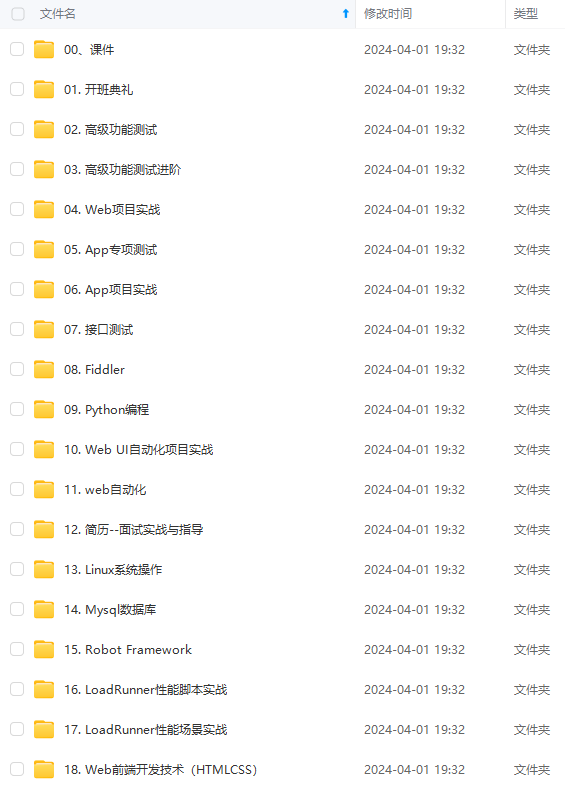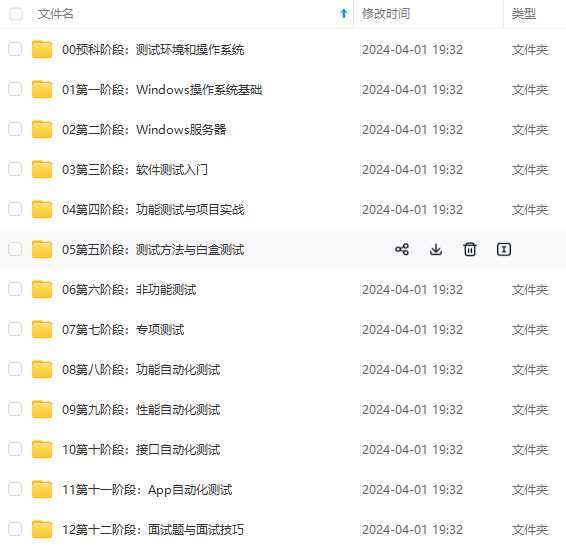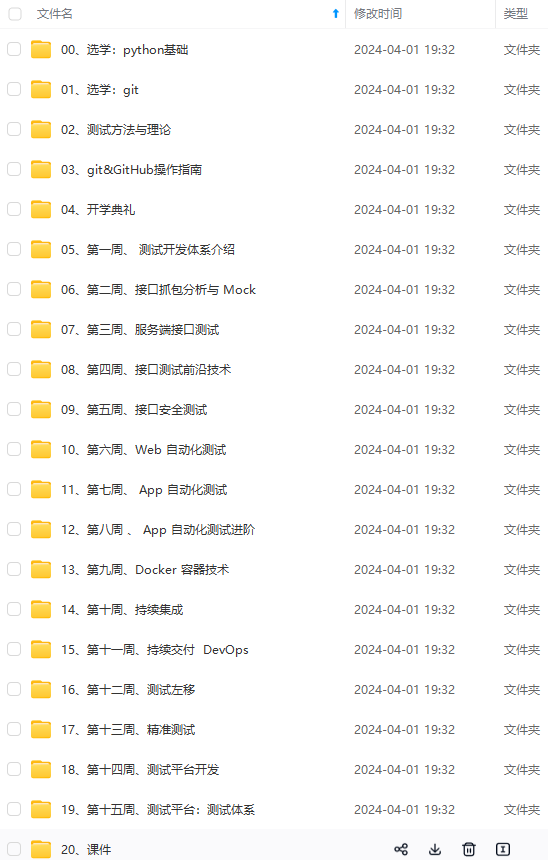elasticsearch + search-guard + filebeat + metricbeat + logstash + kibana ELK整体安装配置教程_metricbeat安装
* java.security.SecurityPermission setProperty.ocsp.enable
* java.util.PropertyPermission * read,write
* java.util.PropertyPermission org.apache.xml.security.ignoreLineBreaks write
* javax.security.auth.AuthPermission doAs
* javax.security.auth.AuthPermission modifyPrivateCredentials
* javax.security.auth.kerberos.ServicePermission * accept
See http://docs.oracle.com/javase/8/docs/technotes/guides/security/permissions.html
for descriptions of what these permissions allow and the associated risks.
-> Installed search-guard-6
(6)修改elasticsearch.yml配置文件
- 1
- 2
- 3
- 4
- 5
======================== Elasticsearch Configuration =========================
———————————- Cluster ———————————–
集群的名称
cluster.name: es-cluster
———————————— Node ————————————
节点的名称
node.name: es-node-1
是否能参加主节点选举
node.master: true
是否是数据节点
node.data: true
———————————– Paths ————————————
数据的目录,此目录自行创建
path.data: /data/elk/es/data
日志目录,此目录自行创建
path.logs: /data/elk/es/logs
———————————– Memory ———————————–
设置为true锁住内存
bootstrap.memory_lock: true
———————————- Network ———————————–
监听的主机(不限请求机器)
network.host: 0.0.0.0
监听的默认端口
http.port: 9200
——————————— Discovery ———————————-
这是一个集群中的主节点的初始列表,当节点(主节点或者数据节点)启动时使用这个列表进行探测
discovery.zen.ping.unicast.hosts: [“10.253.177.35”, “10.253.177.36”, “10.253.177.37”]
主节点最少的个数,建议为:节点数/2+1
discovery.zen.minimum_master_nodes: 2
discovery.zen.ping_timeout: 30s
以下三个是前台跨域问题解决办法
http.cors.enabled: true
http.cors.allow-credentials: true
http.cors.allow-origin: “/.*/”
必须设置xpack为false
xpack.security.enabled: false
search-guard节点证书,不同的节点填写成对应的证书
searchguard.ssl.transport.pemcert_filepath: key/search-guard-certificates/node-certificates/CN=es-node-1.crtfull.pem
search-guard节点key
searchguard.ssl.transport.pemkey_filepath: key/search-guard-certificates/node-certificates/CN=es-node-1.key.pem
该密钥可在解压的证书文件夹下的README.txt里可查到
searchguard.ssl.transport.pemkey_password: 7719b9f699c993abb4d0
searchguard.ssl.transport.pemtrustedcas_filepath: key/search-guard-certificates/chain-ca.pem
searchguard.ssl.transport.enforce_hostname_verification: false
searchguard.ssl.http.enabled: true
searchguard.ssl.http.pemcert_filepath: key/search-guard-certificates/node-certificates/CN=es-node-1.crtfull.pem
searchguard.ssl.http.pemkey_filepath: key/search-guard-certificates/node-certificates/CN=es-node-1.key.pem
searchguard.ssl.http.pemkey_password: 7719b9f699c993abb4d0
searchguard.ssl.http.pemtrustedcas_filepath: key/search-guard-certificates/chain-ca.pem
searchguard.authcz.admin_dn:
- CN=sgadmin
searchguard.audit.type: internal_elasticsearch
searchguard.enable_snapshot_restore_privilege: true
searchguard.check_snapshot_restore_write_privileges: true
searchguard.restapi.roles_enabled: [“sg_all_access”]
上面的pemkey\_password可在search-guard-certificates- …… .tar.gz下的README.txt中查到
- 1
- 2
- 3
- 4
- 5
README.txt
Passwords
Common passwords
Root CA password: 495f7fc3b340008ff918413cdfca56d8d7e8a047
Truststore password: 96808e3ec8fe2c14f74f
Admin keystore and private key password: 53b895fd2d74ef87d643
Demouser keystore and private key password: f2ad809cf899194ec804
Host/Node specific passwords
Host: es-node-1
es-node-1 keystore and private key password: 7719b9f699c993abb4d0
es-node-1 keystore: node-certificates/CN=es-node-1-keystore.jks
es-node-1 PEM certificate: node-certificates/CN=es-node-1.crtfull.pem
es-node-1 PEM private key: node-certificates/CN=es-node-1.key.pem
Host: es-node-2
es-node-2 keystore and private key password: 280c91c6ac87998eec2e
es-node-2 keystore: node-certificates/CN=es-node-2-keystore.jks
es-node-2 PEM certificate: node-certificates/CN=es-node-2.crtfull.pem
es-node-2 PEM private key: node-certificates/CN=es-node-2.key.pem
Host: es-node-3
es-node-3 keystore and private key password: 48241eecae07f957b8da
es-node-3 keystore: node-certificates/CN=es-node-3-keystore.jks
es-node-3 PEM certificate: node-certificates/CN=es-node-3.crtfull.pem
es-node-3 PEM private key: node-certificates/CN=es-node-3.key.pem
(7)其余两台机器也是如上配置,修改对应的密码即可
(8)将三台机器上的es停止并重新启动(*****)
(9)设置权限因子,将sgadmin客户端证书密钥复制到插件目录下,步骤在README.txt中也有,三台机器的es依次设置,步骤一致
- 1
- 2
- 3
- 4
- 5
- 6
- 7
README.txt
On the node where you want to execute sgadmin on:
* Copy the file ‘root-ca.pem’ to the directory ‘plugins/search-guard-/tools’
* Copy the file ‘client-certificates/CN=sgadmin.crtfull.pem’ to the directory ‘plugins/search-guard-/tools’
* Copy the file ‘client-certificates/CN=sgadmin.key.pem’ to the directory ‘plugins/search-guard-/tools’
Change to the ‘plugins/search-guard-/tools’ and execute:
chmod 755 ./sgadmin.sh
./sgadmin.sh -cacert root-ca.pem -cert CN=sgadmin.crtfull.pem -key CN=sgadmin.key.pem -keypass 53b895fd2d74ef87d643 -nhnv -icl -cd …/sgconfig/
操作步骤如下:
- 1
- 2
- 3
- 4
- 5
cd /home/elk/elasticsearch/config/key/search-/local/elasticsearch/config/key/search-guard-certificates
cp root-ca.pem chain-ca.pem client-certificates/CN=sgadmin.key.pem client-certificates/CN=sgadmin.crtfull.pem …/…/…/plugins/search-guard-6/tools
cd …/…/…/plugins/search-guard-6/tools
chmod 755 sgadmin.sh
./sgadmin.sh -cacert root-ca.pem -cert CN=sgadmin.crtfull.pem -key CN=sgadmin.key.pem -keypass 00fb1075cf84c333f1cc -nhnv -icl -cd …/sgconfig/
-nhnv -icl -cd …/sgconfig/
Search Guard Admin v6
Will connect to localhost:9300 … done
Elasticsearch Version: 6.4.0
Search Guard Version: 6.4.0-23.1
Connected as CN=sgadmin
到下面这补可能会卡着,无需担心,只需要在其余两台机器执行设置权限因子操作,次步即可继续执行下去(*****)
Contacting elasticsearch cluster ‘elasticsearch’ and wait for YELLOW clusterstate …
Clustername: GHS-ELK
Clusterstate: GREEN
Number of nodes: 3
Number of data nodes: 3
searchguard index already exists, so we do not need to create one.
Populate config from /usr/local/elasticsearch/plugins/search-guard-6/sgconfig
Will update ‘sg/config’ with …/sgconfig/sg_config.yml
SUCC: Configuration for ‘config’ created or updated
Will update ‘sg/roles’ with …/sgconfig/sg_roles.yml
SUCC: Configuration for ‘roles’ created or updated
Will update ‘sg/rolesmapping’ with …/sgconfig/sg_roles_mapping.yml
SUCC: Configuration for ‘rolesmapping’ created or updated
Will update ‘sg/internalusers’ with …/sgconfig/sg_internal_users.yml
SUCC: Configuration for ‘internalusers’ created or updated
Will update ‘sg/actiongroups’ with …/sgconfig/sg_action_groups.yml
SUCC: Configuration for ‘actiongroups’ created or updated
Done with success
(10)验证,在浏览器输入其中一台es的ip:9200会提示输入账号密码,默认账号密码为admin/admin
### 2.2、kibana 安装
(1)将kibana的压缩包上传并解压
(2)进入kibana的目录下的config目录,修改kibana.yml
- 1
- 2
- 3
- 4
- 5
- 6
- 7
- 8
- 9
- 10
- 11
- 12
- 13
- 14
启动端口
server.port: 5601
监听地址
server.host: “10.253.177.31”
server.name: “log-kibana”
从elasticsearch中找日志,因为es中使用了search-guard,所以此处是https
elasticsearch.hosts: [“https://10.253.177.35:9200”]
es的账号(必须)
elasticsearch.username: “admin”
es的密码(必须)
elasticsearch.password: “admin”
ssl验证(必须none)
elasticsearch.ssl.verificationMode: none
xpark安全(必须false)
xpack.security.enabled: false
kibana的索引
kibana.index: “.kibana”
语言
i18n.locale: “zh-CN”
(3)进入kibana的bin目录 ./kibana &启动kibana,然后再浏览器输入192.168.1.114:5601即可查看
### 2.3、metricbeat 安装
(1)将metricbeat的压缩包上传并解压
(2)进入metricbeat的目录下,修改metricbeat.yml
- 1
- 2
- 3
- 4
- 5
- 6
- 7
- 8
- 9
- 10
- 11
- 12
- 13
- 14
metricbeat.config.modules:
path: ${path.config}/modules.d/*.yml
reload.enabled: false
#==================== Elasticsearch template setting ==========================
setup.template.settings:
index.number_of_shards: 3
index.codec: best_compression
#_source.enabled: false
#============================== Kibana =====================================
setup.kibana:
#================================ Outputs =====================================
#————————– Elasticsearch output ——————————
output.elasticsearch:
hosts: [“10.253.177.35”, “10.253.177.36”, “10.253.177.37”]
下面4个必须,因为es使用了search-guard
protocol: “https”
username: “admin”
password: “admin”
ssl.verification_mode: “none”
#================================ Processors =====================================
processors:
- add_host_metadata: ~
- add_cloud_metadata: ~
(3)在metricbeat的目录下执行./metricbeat -e -c metricbeat.yml &启动metricbeat
(4)在每台需要安装metricbeat的机器上执行如上步骤
### 2.4、filebeat 安装
(1)将filebeat的压缩包上传并解压
(2)进入filebeat的目录下,修改filebeat.yml
- 1
- 2
- 3
- 4
- 5
- 6
- 7
- 8
- 9
- 10
- 11
- 12
- 13
- 14
- 15
#=========================== Filebeat inputs =============================
filebeat.inputs:
- type: log
enabled: true
此处可以写多个路劲
paths:
- /opt/kettle/log//.log
tags是内容是自定义的
tags: [“kettle-log”]
fields为自定义字段
fields:
application-name: kettle应用
log-type: kettle日志
log-server: 192.168.1.101
log-conf-name: *.log自定义字段生效此处需设为true
fields_under_root: true
日志需包含的内容
include_lines: [‘ERROR’,‘PANIC’,‘FATAL’,‘WARNING’]
对于一条日志以多行存在的处理 multiline.pattern后面跟着正则表达式
multiline.pattern: ‘Logging is at level’
true 或 false,默认是false,匹配pattern的行合并到上一行;true,不匹配pattern的行合并到上一行
multiline.negate: true
after 或 before,合并到上一行的末尾或开头
multiline.match: after
multiline.flush_pattern: ‘Processing ended’
#============================= Filebeat modules ===============================
filebeat.config.modules:
path: ${path.config}/modules.d/*.yml
reload.enabled: false
#==================== Elasticsearch template setting ==========================
setup.template.settings:
index.number_of_shards: 3
#================================ Outputs =====================================
#—————————– Logstash output ——————————–
output.logstash:
hosts: [“192.168.1.114:5044”]
#================================ Processors =====================================
processors:- add_host_metadata: ~
- add_cloud_metadata: ~
(3)在filebeat的目录下./filebeat &启动filebeat
### 2.5、logstash 安装(*****)
(1)将logstash的压缩包上传并解压
(2)进入filebeat的config目录下,新建filebeat.conf文件
(3)编辑filebeat.conf文件
- 1
- 2
- 3
- 4
- 5
- 6
- 7
- 8
- 9
- 10
- 11
- 12
- 13
- 14
- 15
input {
beats {
port => 5044
}
}
filter {
if “kettle-10.253.177.27” in [tags]{
grok {
pattern_definitions => {
# 自定义的正则解析
“CUSTOM_TIME” => “20%{YEAR}/%{MONTHNUM}/%{MONTHDAY} %{HOUR}:?%{MINUTE}(?::?%{SECOND})”
}
match => {
# 将日志拆成两个字段
“message” => “%{CUSTOM_TIME:time}s*-s*%{GREEDYDATA:message}”
}
# 覆盖原有的message字段
overwrite => [“message”]
}
mutate {
# 删除自带的字段@version
remove_field => [“@version”]
}
}
………………………………
- 1
- 2
}
output {
if “kettle-10.253.177.27” in [tags]{
elasticsearch{
# 以下6个必填,因为es配置的search-guard,密码在search-guard的README.txt中可找到
user => “admin”
password => “admin”
# 是否开启ssl,我们要使用https,必须设为true
ssl => true
# ssl_certificate_verification 这个参数设置我们想像kinana那样设置成fasle是不行的,还是会报错,也就是必须设置成true,这样一来下面的truststore和truststore_password 必须配置(ps:这里我去作者github上看过issue了,没有解决办法,而且作者在源码中的注视中已经说明这个参数一直不正常,所以遗弃。)
ssl_certificate_verification => true
truststore => “/home/elk/logstash/logstash-6.6.1/config/key/truststore.jks”
truststore_password => “96808e3ec8fe2c14f74f”
hosts => ["es-node-1:9200", "es-node-2:9200", "es-node-3:9200"]
# 日志在es中的index
index => "kettle-log"
}
}
………………………………
- 1
- 2
- 3
- 4
- 5
- 6
}
(4)truststore 和truststore\_password 如何配置
truststore:这里我们还是先使用es下的这个truststore.jks,从es的机器拷贝过来。
truststore\_password:这个密码在search-guard中的README.txt可找到。
到此还有最关键一步,连接的hosts => [“es-node-1:9200”, “es-node-2:9200”, “es-node-3:9200”],因为官方授信文件中指定的是es的nodename(README.txt中可看出),所以此处就必须这么配,这就需要我们再/etc/hosts中配置三个es的nodename的正确地址。
- 1
- 2
- 3
- 4
- 5
- 6
- 7
- 8
vi /etc/hosts
192.168.1.111 es-node-1
192.168.1.112 es-node-2
192.168.1.113 es-node-3
(6)进入logstash的bin目录./logstash -f …/config/filebeat.conf &启动logstash
### 2.6、ELK的启动顺序



**既有适合小白学习的零基础资料,也有适合3年以上经验的小伙伴深入学习提升的进阶课程,涵盖了95%以上软件测试知识点,真正体系化!**
参考:docs.qq.com/doc/DSlVlZExWQ0FRSE9H
de-1
192.168.1.112 es-node-2
192.168.1.113 es-node-3
- 1
- 2
- 3
- 4
- 5
- 6
- 7
- 8
- 9
- 10
- 11
- 12
- 13
- 14
- 15
- 16
- 17
- 18
- 19
- 20
- 21
- 22
(6)进入logstash的bin目录./logstash -f …/config/filebeat.conf &启动logstash
2.6、ELK的启动顺序
[外链图片转存中…(img-Jfv2J7HF-1724716385134)]
[外链图片转存中…(img-ADfrmWfa-1724716385135)]
[外链图片转存中…(img-pHeaKeRY-1724716385136)]
既有适合小白学习的零基础资料,也有适合3年以上经验的小伙伴深入学习提升的进阶课程,涵盖了95%以上软件测试知识点,真正体系化!
参考:docs.qq.com/doc/DSlVlZExWQ0FRSE9H
相关文章







